I need to come up with new synonyms for awesome, incredible, unbelievable...because once again, my weekend was all of those and more.
(This was an optional trip organized by the program, so there were 40 of us, two professors and one professor/priest)
We started the six hour drive to Meteora, taking a pit stop at Thermopylae, the setting of "300" (Quick history lesson: this was the battle in which three hundred Spartan soldiers--okay and a few thousand other Grecians, but let's be real it was mostly the Spartans--held off as many as 250,000 Persian soldiers for a miraculously long time. And they would have continued doing so if a little shepherd boy hadn't sold them out, and for obscene amounts of bribery told the Persians of a sheep path that would lead them to the back side of the Greek troops. At this point, the Greeks knew they could no longer defend themselves and had no chance of surviving, so the Spartan leader Leonidas told all of the other Greek troops to run while they still could, and the Spartans would hold the Persians off until they were dead. The valiant (and stubborn/proud) Spartans refused to retreat and fought until they all died). Once again, I was lucky enough to not only see an interesting historical site but also had my professor (a walking encyclopedia, expert-on-everything and excellent storyteller) as a guide.

 |
| Memorial to Leonidas |
on the ancient battlefield.
We made it to Meteora by late afternoon. By far the most unusual landscape I've ever seen--odd rock pillars jutting out of the green plains, with monasteries perched precariously on top of them. Breathtaking.
We stopped by the largest nunnery, and then went to our hotel and had a quiet evening and a good dinner with the specialty of the area: grilled meats!
What I saw when I walked out onto my balcony at the hotel:
 Then we drove a few more hours northward and found ourselves in the quaint mountain town of Metsovo--a very different image of Greece than what's typically presented, with logcabin-like buidlings, cobblestone streets, and little shops that sold either cheeses or woodcarvings. It was the most Fall I've experienced in six years (while I love California weather dearly, it doesn't have a real, satisfying Fall with a capital F), and it was fabulous. The crispness of the evening mountain air, the crunchy leaves on the ground, and the faint everpresent smell of woodsmoke were a welcomed change from Athens. We had a delicious, homey meal next to a roaring fire in a cozy taverna, with Metsovon specialties: fried local cheese, bean soup with fresh bread, succulent veal in a tomato sauce served on handmade pasta, and roasted lamb that tasted like no lamb I've ever had before--incredibly tender, and with something that tasted like lamb-flavored crispy chicken skin? Still trying to work that one out, but it was delicious!
Then we drove a few more hours northward and found ourselves in the quaint mountain town of Metsovo--a very different image of Greece than what's typically presented, with logcabin-like buidlings, cobblestone streets, and little shops that sold either cheeses or woodcarvings. It was the most Fall I've experienced in six years (while I love California weather dearly, it doesn't have a real, satisfying Fall with a capital F), and it was fabulous. The crispness of the evening mountain air, the crunchy leaves on the ground, and the faint everpresent smell of woodsmoke were a welcomed change from Athens. We had a delicious, homey meal next to a roaring fire in a cozy taverna, with Metsovon specialties: fried local cheese, bean soup with fresh bread, succulent veal in a tomato sauce served on handmade pasta, and roasted lamb that tasted like no lamb I've ever had before--incredibly tender, and with something that tasted like lamb-flavored crispy chicken skin? Still trying to work that one out, but it was delicious!Attending the service was a valuable experience considering that (debatably) 97% of Greeks identify as being Greek Orthodox, and the religion is incredibly important to both personal and national identity--and to government and politics. Many of the things the priest said over coffee were interesting (it's always interesting to hear Greeks speak to a group of American students; the conversation almost inevitably leads to comments on the crisis and our duties as Americans):
"We were once an empire like you are now...it is your job to tell your leaders that it is time for them to give the truth...We hope for things to change, but will it be a future of lone shark bankers? Or of Christ and the church?...or whatever else you find in your studies". He made a few other disparaging remarks about bankers as well in the course of the conversation.
We then walked through the restored house of the wealthiest Metsovon family, and then piled on the bus, regrettably leaving the clear mountain air and quaint homeyness of the town and heading back to the busy metropolitan life of Athens.







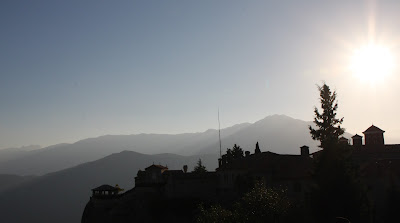





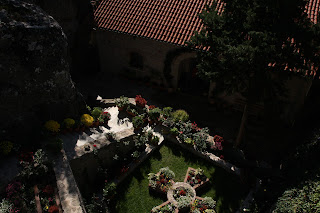




.jpg)

.jpg)
.jpg)








.jpg)




.jpg)

.jpg)


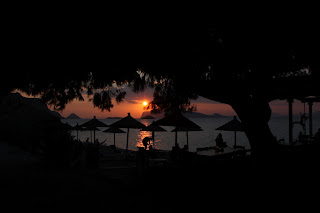

.jpg)






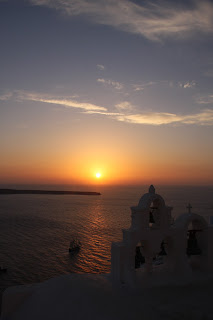













.jpg)

.jpg)
.jpg)
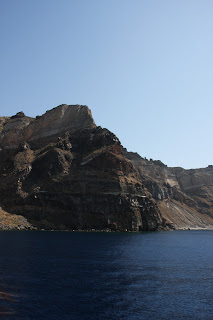



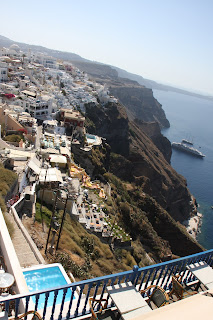
.jpg)
.jpg)
